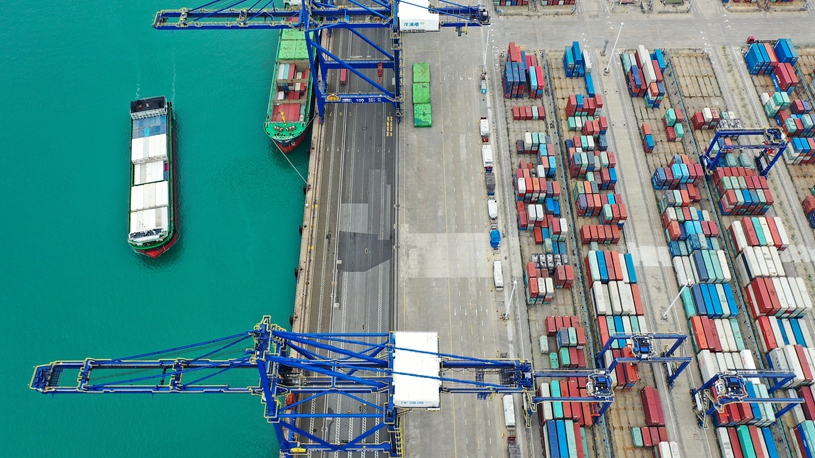
BEIJING, March 20 (Xinhua) -- China's forex market saw a stable performance in February, with a more steady flow of cross-border capital, demonstrating the enduring allure and promising prospect of yuan-denominated assets, according to analysts.
The country's commercial banks saw a net forex settlement surplus of 12 billion yuan (about 1.69 billion U.S. dollars) in February, data from the State Administration of Foreign Exchange showed.
In yuan terms, forex purchases by banks stood at about 1.09 trillion yuan, while sales reached about 1.08 trillion yuan.
GROWING WILLINGNESS TO INVEST IN CHINA
The net inflow of cross-border funds under the goods trade and the securities investment categories both remained at a high level in February, said Wang Chunying, deputy director and spokesperson of the administration.
The daily net inflow of cross-border funds under the goods trade category, deducting the Spring Festival holiday effect and other factors, rose by 3 percent year on year during the period, which continues to underpin the fundamentals of cross-border capital flow, Wang said.
The net increase in foreign holdings of domestic bonds stood at a higher level at 11.1 billion U.S. dollars in February, and foreign investment in domestic stocks turned to net gain during the period, Wang added.
Commenting on the expansion of foreign holdings of domestic bonds, Zhao Qingming, a specialist in international finance, said the data reflects that international financial institutions are bullish on the returns of yuan-denominated bonds in the future.
ENDURING APPEAL OF CHINESE MARKET
Looking ahead, Wang said China's forex market would maintain stable performance, bolstered by the country's solid economic fundamentals, consistent support policies and the market's growing resilience.
She cited reasons such as China's efforts in enhancing macro-control to underpin economic recovery momentum in 2024, steadily advancing institutional opening-up, and improving the business environment to facilitate cross-border trade, investment and financing.
A higher sense of risk management on forex rate fluctuations among enterprises, increased share of RMB use in cross-border trade and the potential monetary policy shifts of major developed economies, which could alleviate external liquidity squeeze, are also likely to contribute to the stability of China's foreign exchange market, Wang added.
Experts believe that a positive outlook of the Chinese market presents sustaining appeal for foreign investors.
The Board of the Pension Protection Fund of the United Kingdom has recently been greenlighted by the China Securities Regulatory Commission as an eligible overseas institution to invest in China's domestic securities and futures market. It is the fourth foreign institution investor to receive approval since the beginning of this year.
Wen Bin, chief economist at China Minsheng Bank, said the yuan-denominated assets are revealing their hedging value and the investment value, and foreign investors are more willing to invest in the Chinese market and increase their holdings of yuan-denominated assets in their portfolio. ■











